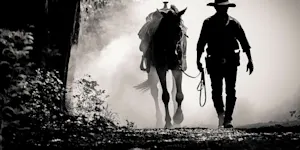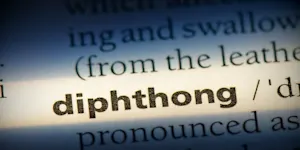What Makes This Word Tick
The word "behemoth" has a certain grandiosity about it, doesn't it? You hear "behemoth," and you're probably thinking of something colossal and imposing. It's a word that suggests power and might, capturing the imagination with its sheer size and presence.
If Behemoth Were a Person…
If "behemoth" were strolling around in person form, you'd notice them immediately in a crowd. Picture a towering figure, with a surprisingly gentle nature, perhaps. They’d have a personality larger than life, but with an unassuming modesty that people unexpectedly find themselves drawn to.
How This Word Has Changed Over Time
Originally, "behemoth" appears in the Bible, in the Book of Job, as a mysterious beast that symbolizes God's power. Over the centuries, it transitioned from a divine creature to a term we use today to describe anything remarkably large or powerful, from corporations to technology.
Old Sayings and Proverbs That Use Behemoth
Though “behemoth” isn’t typically found in old-timey sayings, the concept of great beasts or massive entities has long been a touchstone in folklore. You might think of phrases like “an elephant in the room” to capture the same larger-than-life spirit.
Surprising Facts About Behemoth
Did you know that the mythological behemoth was originally thought to be a hippopotamus? In ancient texts, descriptions of the behemoth often resemble this massive riverine animal. It’s a bit humbling to think what was awe-inspiring then is now considered simply part of our planet's stock characters.
Out and About With This Word
In modern usage, you might find "behemoth" cropping up in business news, describing market giants like Amazon. But it’s versatile—so if you have a particularly stubborn weed garden, feel free to dub that thistle a "behemoth."
Pop Culture Moments Where Behemoth Was Used
In pop culture, "behemoth" shows up in everything from movies featuring monstrous creatures to epic video game battles. Think of Godzilla-esque creatures or the formidable challenges heroes face in films and on screen.
The Word in Literature
"Behemoth" saunters through literature with an air of significance. It’s employed by authors seeking to evoke imagery of enormous size or powerful forces. John Milton used it masterfully in "Paradise Lost," evoking the sensational awe and terror such a creature inspires.
Moments in History with Behemoth
The Industrial Revolution could be seen as one of history's great behemoths—gigantic machines and colossal factories transforming the world. The term, while not used at the time, is fitting for describing the era's transformative might and massiveness.
This Word Around the World
In Hebrew, "behemoth" is בְּהֵמוֹת, essentially describing a beast. Across cultures, you’ll find languages capturing its essence; in French, it's pronounced virtually the same, emphasizing its cross-linguistic allure as something grand and beastly.
Where Does It Come From?
The word "behemoth" has its roots in the Hebrew Bible, where it described a water beast of huge proportions. Originally from the Hebrew word 'bəhēmōth', its journey through languages has preserved much of its original grandeur.
How People Misuse This Word
Sometimes people use "behemoth" to describe anything merely big, missing its connotation of immense power and presence. Not every jumbo-sized coffee is a behemoth, after all—unless it can also seemingly walk on its own.
Words It’s Often Confused With
Colossus: Though both signal something large, "colossus" often implies architecture or monuments rather than living creatures.
Giant: While similar, "giant" typically refers to size specifically, while "behemoth" suggests power as well.
Titan: A titan implies extraordinary strength and influence, often in matters of significance beyond physical size.
Additional Synonyms and Antonyms
Synonyms for "behemoth" include giant, leviathan, and colossus. Its antonyms might be pygmy or miniature, conjuring images that are vastly smaller in scale and power.
Want to Try It Out in a Sentence?
Here's a fun example: "When the new shopping mall opened, complete with its monstrous parking spaces and seemingly endless rows of shops, the local papers rightly dubbed it the city’s newest behemoth."
















